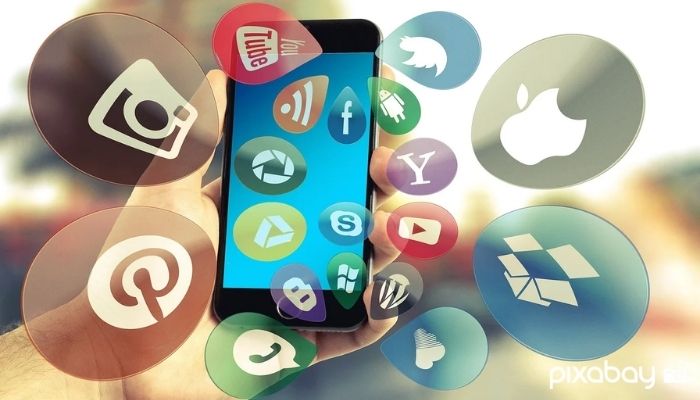Social media refers to applications, websites, and platforms available through the connectivity of the internet to a user. It is easily accessible on phones, computers, laptops, and other electronic devices. Through social media platforms, people can share their thoughts, opinions, and information in any form. It provides them with quick access to knowledge such as, but not limited to, personal information, videos, pictures, documents. Today social media platforms have become one of the basic necessities for internet users. According to an analysis by DataReportal from October 2021, 4.55 billion social media users around the world are active on social media platforms of their preference. This equals 57.6% of the total population of the world!
Mental Health
Mental health means our state of mind, which includes our emotional, psychological, and social behaviour. Mental health dictates the stress one endures and their ability to handle the stress. This, in turn, affects one’s decision-making abilities, the choices one makes in their lives. Mental health occupies a very important place in the daily routine, relationships, and overall health of an individual.
Impact of Social Media On Mental Health
Social networking has proved to be a crucial element in protecting one’s mental health since both the quantity and quality of social relationships are prone to affecting mental and physical health, healthy behaviour and mortality risk. There is a theory being termed to explain this. It is called displaced behaviour theory which states that people who spend more time on social media have less time for face-to-face interaction. Other than that, social theories claimed that the use of social media affects mental health based on how social media users view, maintain, and interact with other social media users in their networks.
Statistics
Many surveys and population-based studies have linked the impact of social media to the mental health of internet users. In the USA alone, a survey shows that there has been an increase in suicide attempts of 25% in teenagers between 2009 and 2017. Another population-based study has shown there has been a decline in mental health among internet users in the USA with a 37% increase in cases of depression.
Negative Effects
For a technology that is supposed to bring people closer together, it has quite a lot of negative effects on the mental well-being of the people.
- Depression. People who tend to use social media more than 2 hours per day have more tendency to feel depressed. Social media can incorporate feelings such as loneliness and anxiety. It can make people feel isolated and alone.
- Self-Esteem. Social media usage puts people under constant pressure to maintain or enhance their image in public eyes. It breaks the feeling of inadequacy even though the things on social media are manipulated. They can cause a feeling of jealousy, insecurity, and inferiority.
- Fear of Missing Out. Fear of Missing Out or “FOMO” is another phenomenon observed among users of social media. The need to be updated about the lives of others and experience something that makes you feel that other people are living a better life than you.
- Self-Absorption. The use of excessive social media can cause self-absorption. When a person’s daily routine revolves around sharing their selfies and updating status and tweeting their opinions and thoughts, they create and self-centred environment where they worry more about their online image than their actual persona.
- Impulse Control Issue. Excessive social media usage can lead to impulse control issues. With the availability of smartphones, one can easily tap into their accounts and that leads to the impulse issue of replying to every message and comment.
Solution
Excessive usage of social media is linked to an increase in mental health issues. The first step to reducing this risk is acknowledging that the risk exists and it has to be sorted out. Smartphones have made social media easily accessible and made it a need of today for everyone. However, by following a few simple steps one can easily reduce the risks that are attached to it.
- Limit the per-day usage of smartphones and social media. Unchecked and unscheduled usage leads to excessive use.
- Keep your personal information private. Online platforms should not be used to share every part of a person’s personal life. This can lead to addiction to social media as well as cybercrimes such as Identity theft and Cyber Hacking.
- Make social media a safe space for yourself but with limited involvement. The more one gets involved on the internet, the more likely one is to be cyberbullied.
- Report anything that you come across on social which might be disturbing or unethical.
- Social media should be used to get in touch with people not as a tool to make an online persona. This results in total neglect of the physical world and one remains glued to their phone and computer.
If anyone around you is suffering or showing symptoms of depression and anti-social behaviour, it is best to consult them in professional care. The one benefit of social media platforms is that anything can be accessed online, even through therapeutic consultations. All one needs is an internet connection from Xfinity internet plans, find the right social media platform for it, and he is good to go for professional care.
